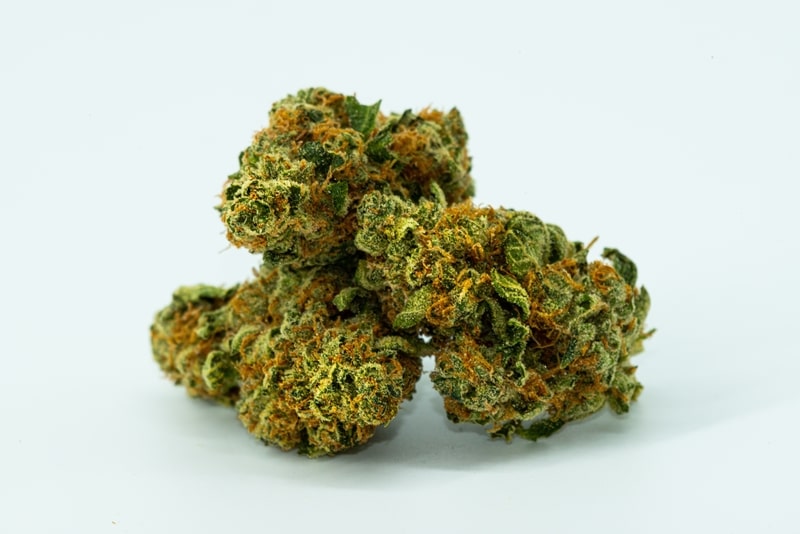
Minnesota is one of several states that passed laws to decriminalize the possession of small amounts of marijuana, as well as marijuana possession for medical use.
However, Minnesota still has strict drug statutes on the books, despite easing some restrictions.
These varying laws can be confusing and lead many people to wonder, When is possession of marijuana a felony?
If you face possession of marijuana charges in Minnesota, you need a tough, dedicated criminal defense lawyer to fight for you.
At the Criminal Defense Attorney & Workers Compensation Law Offices of Arechigo & Stokka, our criminal defense lawyers have extensive experience fighting for people accused of drug possession.
When facing criminal charges, a lot is on the line. But with the help of our Five Star-Rated lawyers, you may be able to avoid the harsh penalties associated with drug offenses in Minnesota.
Is Marijuana Possession a Felony?
So we come back to our basic question for this article, When is possession of marijuana a felony?
Possession of marijuana can be a felony if the weight of the drug meets or exceeds the minimum threshold set by law.
Possession of marijuana can also be a felony if you are trying to sell it.
Under Minnesota law, the penalties for possession and sale become more severe as the weight of the drug increases.
Since this criminal classification depends on weight, you might wonder how the weight is determined.
When calculating the weight of marijuana to determine if it meets the minimum weight threshold to warrant a felony charge, it’s important to know that the weight can be a mixture of substances.
In other words, the substance being weighed does not have to be pure marijuana or tetrahydrocannabinol (THC) to qualify as a controlled substance felony.
Controlled Substance Crime in the First Degree
Selling more than 25 kilograms of marijuana within 90 days is a controlled substance crime in the first degree.
Similarly, unlawfully possessing 50 kilograms or more of marijuana or 500 or more marijuana plants is a controlled substance crime in the first degree.
It’s interesting to note that police can use the weight of bong water to determine the overall weight of the controlled substance, provided that the bong water weighs at least four fluid ounces.
The penalty for committing a controlled substance crime in the first degree is incarceration in state prison for no more than 30 years and a fine of up to $1,000,000.
Minnesota law also allows the prosecution to enhance a sentence in certain situations.
For instance, the prosecution can increase the maximum sentence to 40 years if someone possesses, brandishes, or uses a firearm to commit the crime.
The prosecutor can also enhance the basic sentence if two aggravating factors are present.
The minimum sentence in that instance is 86 months, but it could be higher if the Minnesota sentencing guidelines allow it.
Controlled Substance Crime in the Second Degree
Selling 10 – 25 kilograms of marijuana is a controlled substance crime in the second degree.
Selling five or more kilograms within 90 days in a school area also qualifies as a controlled substance crime in the second degree.
Possessing 25 – 50 kilograms of marijuana or between 100 and 500 marijuana plants is a second-degree controlled substance crime.
Again, bong water can be included in the weight of the drug as long as there are more than four fluid ounces of liquid.
The minimum penalty for a second-degree controlled substance crime is three years in prison. The maximum penalty is 25 years in prison and a fine of up to $500,000.
The judge can increase the maximum incarceration period to 40 years if the accused has one prior drug conviction.
Controlled Substance Crime in the Third Degree
Selling at least five kilograms of marijuana within 90 days constitutes a controlled substance crime in the third degree.
Selling any amount of marijuana to a person under 18 or using a person under 18 to facilitate marijuana sales is also prohibited under this section.
Possessing at least 10 kilograms within 90 days falls under this category.
Finally, the water used in consuming marijuana can figure into the analysis if it weighs more than four fluid ounces.
The maximum penalty for this charge is 20 years in prison and a fine of up to $250,000.
Controlled Substance Crimes in the Fourth Degree
Selling any amount of marijuana near a prohibited place is a controlled substance crime in the fourth degree.
Restricted areas include parks, schools, drug rehabilitation centers, and public housing. However, the distribution of a small amount of marijuana without payment does not fall under this section.
There is no charge for simple possession of marijuana under this section of the law. The offense carries a 15-year maximum sentence and the potential for a $100,000 fine.
Controlled Substance Crimes in the Fifth Degree
Selling more than a small amount of marijuana is a controlled substance crime in the fifth degree and can be prosecuted as a felony that carries a 5-year maximum prison sentence.
Possession of more than 42.5 grams of marijuana can also be prosecuted as a felony offense.
Felony 5th Degree Controlled Substances Charges Dismissed
State Dismisses Client’s Felony Drug Possession Charges in Blue Earth County
THE FACTS: Client was charged with Felony 5th Degree Drug Possession in Blue Earth County. The drugs were discovered in the client’s vehicle after the police searched his car following a routine traffic stop for expired tabs. The client had felony amounts of marijuana and psilocybin mushrooms in his vehicle. This client’s case had occurred shortly before Minnesota legalized marijuana. The police officer did not have a warrant to search the client’s vehicle. The office asserted a right to search under what’s known as the automobile exception to the warrant requirement. This exception allows police to search a vehicle without a warrant if police can provide probable cause to believe evidence of a crime will be found in a vehicle. In this case, the police officer attempted to base probable cause on noticing an alleged odor of green marijuana. The officer told the client he could smell marijuana and asked for consent to search the car. The client consented to the search. The officer then searched the client’s vehicle and discovered the drugs.
THE DEFENSE: We filed a motion to suppress the drugs found in the car arguing that the officer unlawfully expanded the scope of the traffic stop when he began questioning the client about drugs in the car. We argued that the odor of marijuana by itself no longer provided police with a lawful basis to ask a motorist if there were drugs in the car or if they could search the stopped vehicle. The Minnesota Supreme Court had recently issued its opinion in State v. Torgersen, which supported our argument. Torgersen held that since not all possession of marijuana is unlawful, it was therefore not a crime to possess marijuana and police could not ask for permission to search a stopped vehicle based solely on an odor of marijuana. The state initially opposed our arguments and indicated an intent to prosecute our client. However, the state changed its position and agreed with our assessment shortly before the contested evidentiary hearing was scheduled.
THE RESULT: The Blue Earth county attorney ultimately agreed with attorney John Arechigo’s view of the law and agreed that the officer lacked probable cause to search the client’s vehicle. The state dismissed the client’s felony drug possession charges. We’re now pursuing a full expungement of the client’s records.
Collateral Consequences of a Drug Conviction
Most people worry about how much time they could spend in jail after picking up a drug charge.
All other penalties seem to pale in comparison. However, you should understand the collateral consequences of a felony drug conviction.
Minnesota will revoke your driver’s license after a drug conviction if the court determines you used a motor vehicle to commit the crime.
You could also lose the chance to become a U.S. citizen or lose your green card, and the government could deny you entry into the U.S. from abroad.
Even if you are a citizen, having a felony conviction makes getting a job, getting into school, or getting adequate housing significantly more difficult.
You will also lose the right to lawfully possess a firearm, and you could lose your right to vote.
Dedicated Defense for Your Felony Marijuana Charges
Call Arechigo & Stokka today at 651-222-6603 or contact us online today for a free consultation.
We can discuss your charges and goals for your defense. Then we will develop a strategy that puts you in the best position to resolve your case favorably.
Our drug possession defense lawyers have successfully challenged police searches of clients’ persons, vehicles, and residences resulting in suppression of evidence and dismissal of charges.
You can count on our dedicated, award-winning criminal defense lawyers to fight aggressively to protect your rights.
So call today, and we’ll schedule a time to sit down and discuss your case.



